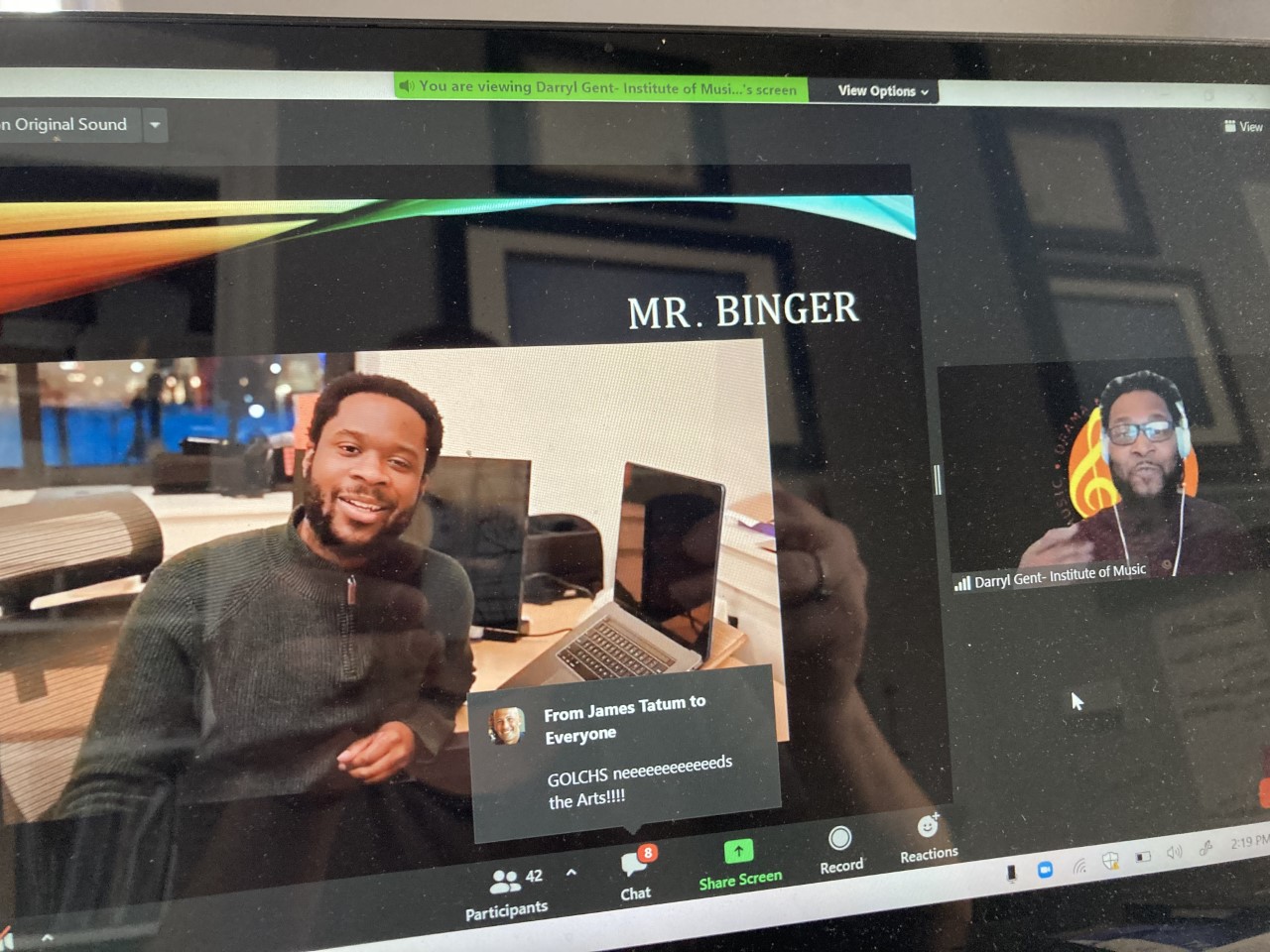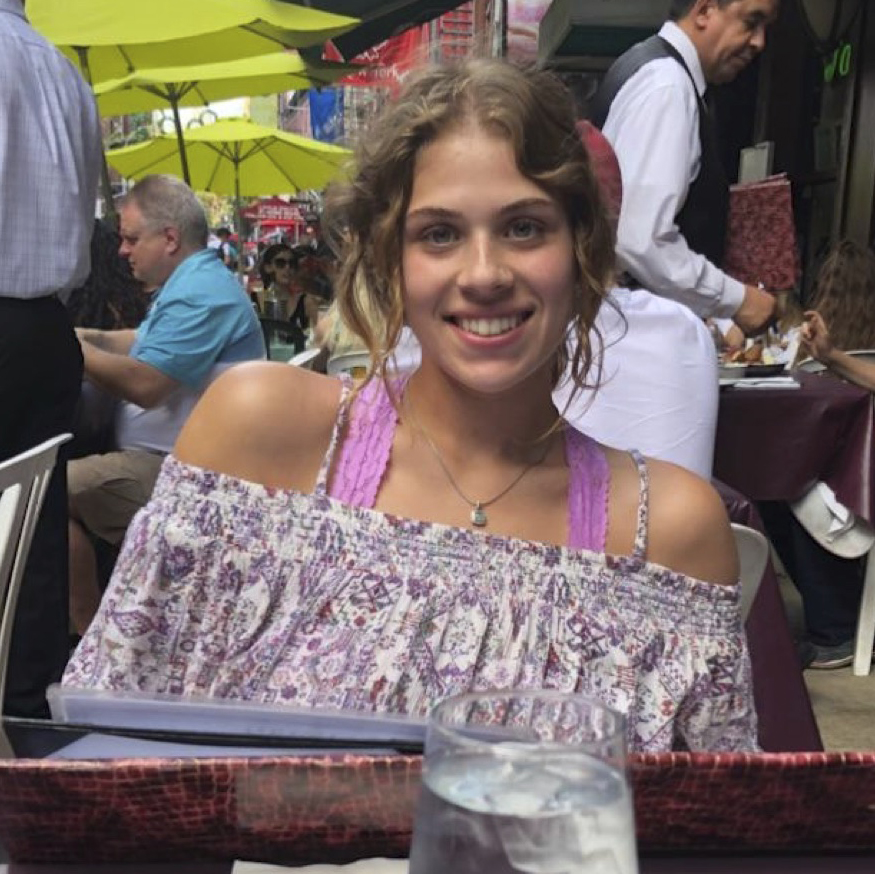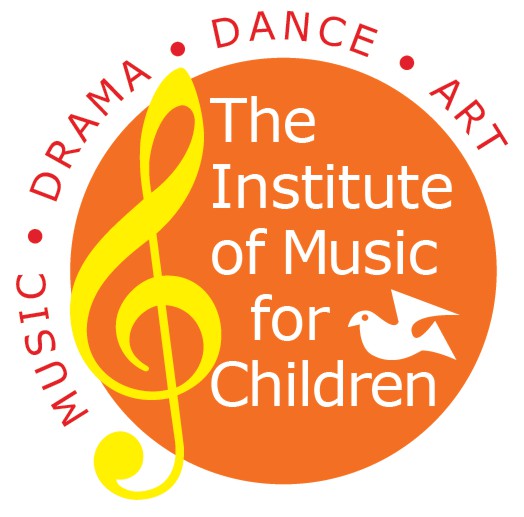OUR BLOG
The Leaders of Tomorrow
by Jacqueline Zemba, Americorps VISTA Member
March 2, 2021

"Education is the key to the future, but every kid has a different lock on their door...The more doors we have open, the more voices we hear—the more voices we hear, the more change we will be compelled to make." (Nathan D.)
The Institute engages with many schools and communities offsite, primarily in the Newark Public Schools system, but also elsewhere. Through solidified partnerships, the Institute offers transformative arts education experiences to students who would not normally receive these types of resources and opportunities. With the visiting artist residency programs, we serve up to 600 additional students each year and have established a strong partnership with Arts Ed Newark, a collective impact organization which The Institute's Executive Director, Alysia Souder, sits as a chairwoman for. The "Community Institute" aspect allows for the Institute of Music for Children to reach more students and provide more equitable services to underserved communities in the Union County area.
Our very own, Darryl Gent, is the head of the Institute's residency programs, and invited me to a residency event in the recent past which showcased the Weequahic High School students' musical talent from a beat production class. Recently, I was gifted the opportunity to attend a Town Hall for students from the Great Oaks Legacy Charter School. Before the students performed their pieces of writing, we got to listen to an introduction from Ms. Sophia Domeville, the student's Global Arts and Culture teacher, who also had the idea for this particular project and Town Hall performance. As part of a civics engagement project, this particular visiting artist residency with our faculty member, Andrew Binger, was a speech writing workshop in which each student would now be showcasing their final piece of writing for us all to hear. What I had not realized until later, was that I would have a front row seat to some of the most inspirational public speakers I had ever heard from—those who would make me look at and question my own place in the world, as well as those who would compel me to look forward, and run feverishly into the future with determination and hope.
"The basis of the Global Arts and Cultures class is to not only ignite the fire within our students--to rediscover their voices, understand their identity within this world--but to also understand the importance of civic engagement and the themes of social justice throughout their life." (Ms. Sophia Domeville)
All of the Institute's work can be directly tied back to its mission of providing transformative creative outlets for children of color, as well as providing them with social and emotional skills necessary for them later in life. The South Ward of Newark, like many urban communities, is extremely underserved and under resourced. This area of the New Jersey city is predominantly made up of lower income families of African and Latin backgrounds. Many residents of the South Ward face financial as well as political disenfranchisement due to their geographic and socioeconomic status. The class and race-driven violence directed towards residents of the South Ward is clearly visible in the lack of educational resources and opportunities provided to its youth.
The students who spoke at the Town Hall were not Institute students themselves, although they did receive a creative experience through our services. The Town Hall was an opportunity to view racial equity initiatives through the lens of young people, specifically on the topics of reproductive rights and health care equity, generational trauma, the need for accessible as well as affordable quality education, respectable pay for teachers, police brutality, the investment in mental health, as well as self and community governance. Each student chose to convey their message through a different literary medium, whether it be a poem, speech, declaration, or call to action. It was clear to me that, even with the variation in writing, a constant was the fact that they used an art form to convey the change they wish to seek in the world. By using their voices, they were encouraging others to use theirs—like what Amore Sanders said, as "using our voice as power."
The students of Great Oaks Legacy Charter School could not help but speak of their circumstances and how these barriers that they face daily have empowered them to use their voices for action—to uncover the ugliness of their circumstances for those willing to listen, while also highlighting the beauty in their quest for profound social change. For many of the Great Oaks students, they do not have the power to turn away or ignore the ugly barriers they face. But what I find truly magical is seeing the Great Oaks student take back that power through the utilization of their words. One speech after another, I could not help but feel like I was witnessing a part of history—to not only use their voices to take back that power for themselves, but to also empower the voices of others. Through arts education, the Institute provided—and continues to provide—a stage and speakerphone for students to demand change as well as instill hope for others in the future.
"Through those conversations, the in-depth discussions with students, the idea of the presidential election was looming for all of us. There was a sense of anxiety and fear of like, wow, we might have another four years with this occupant. And so, it garnered this idea for me of why don't I create a presidential election project for the entire second quarter...and ask our students, 'if you ran the city of Newark, if you were running for presidency with your running mate, what would you focus on and why'? So that turned into this really long project and opened the doors for students who may not have been interested in running for office, were now even more interested in running for office. You know, understanding the reasoning behind what does it mean to say defund the police? What does it mean to talk about the issues with housing within our communities? What does it mean to acknowledge the discrepancies in education for black students? What does that look like and why do you want to change that?" (Ms. Sophia Domeville)
This idea of hope for change is extremely powerful because it allows us to see a whole new world—one where there is less fear and violence. It allows for people to continue to strive for the world we envision. It gives us meaning and purpose to go and run forward with determination and confidence. I think there are a lot of interesting ideas when we look towards the younger generation, one being that they still have a future to shape and experience for themselves—a future in which they have the ability to envision what we cannot. This idea of envisioning a bright future in the midst of a dark past and present is something I will continue to think about well past my time at the Institute.
At the end of the presentation, Mr. Binger had a few final words for the students. "When we're looking for leaders, look no further than yourselves. You have the power to inspire other people your age but also us old folk, who may not necessarily be in tune with what is going on." Hearing the student's ideas and passions for change moved me to take comfort in the unknown—to be hopeful of what can be done in the future that has not yet been done before. The ideas of the younger generation keep us moving forward with bravery and determination, and to strive for a future that we have not yet lived through—a determination to no longer except the idea that history will continue to repeat itself. The students are well aware of the barriers they face as well as the potential barriers for their future. This did not stop them from speaking truth as well as from the heart. This did not stop them from speaking the possibility of a brighter future into existence. This did not discourage them from their future ambitions for the world. The students of Great Oaks inspired me to push forward into the unknown, acknowledging that I will be doing so without all of the necessary answers.
I recently attended a webinar which provided a forum for white professionals in the philanthropic field to reflect on their position in an industry which so clearly highlights the racial power dynamics of this country. What struck me most about this forum as a white middle-class woman, is the useful skill of situating and understanding one's place in the world, no matter how uncomfortable it may be for those who benefit from a racist, sexist, and classist system. At the end of the forum, Vanessa Daniel (Executive Director of the Groundswell Fund), was invited on to speak and reflect on what was discussed by the entirely white panel, as a professional of color in the industry. Ms. Daniel encouraged white professionals to use their power for good and share what power they do have—to create space for people of color and to be an active ally. As an active ally, it is our duty to create introductions, fight for the voices in a room that have been purposely locked out from, and even strive to remove those locks entirely. As a white woman, I should not back off when things are hard. I must keep fighting for those who have to fight much harder with a lot less then I. I will never forget when Ms. Daniel said that it is a decision to not do anything. Being silently passive in situations of injustice is not silent, but rather forceful and highly damaging.
Being invited to the students' speech presentations and listening to their words, they all reminded me that what I do from this point on matters. It matters for my future as well as for others who do not look like me and do not benefit from the system in the same ways that I do. The students from Great Oaks Legacy Charter School painted the possibility of a brighter future in the midst of a dark past and present. Their barriers have not stopped them from promising to go forward confidently, knowing that what they do next will have consequences. How could they strive forward with an immense amount of strength and not I? The students of the Great Oaks Legacy Charter school are asking us all to be brave and hold onto the belief that the unknown future can offer life-changing possibilities.
I was given the opportunity to interview Ms. Domeville about the inspiration behind her idea for the speech writing project, as well as what inspires her most about her students. At the end of the interview, I asked her this one question: if you could say one thing to your young student self, what would it be?
"Little Sophia. Oh, that is loaded!" Ms. Domeville jokingly replied. She mentioned that her childhood was not easy, both in and out of school. She took a breath, and pondered the question for a few seconds longer.
After some thought, Ms. Domeville simply replied, "Change will come."
Author

Jacqueline Zemba is a recent graduate of Ithaca College and completed her Bachelor’s degree in Sociology with a minor in International Politics. She is currently a Service Member at the Institute as part of the AmeriCorps VISTA Program.
